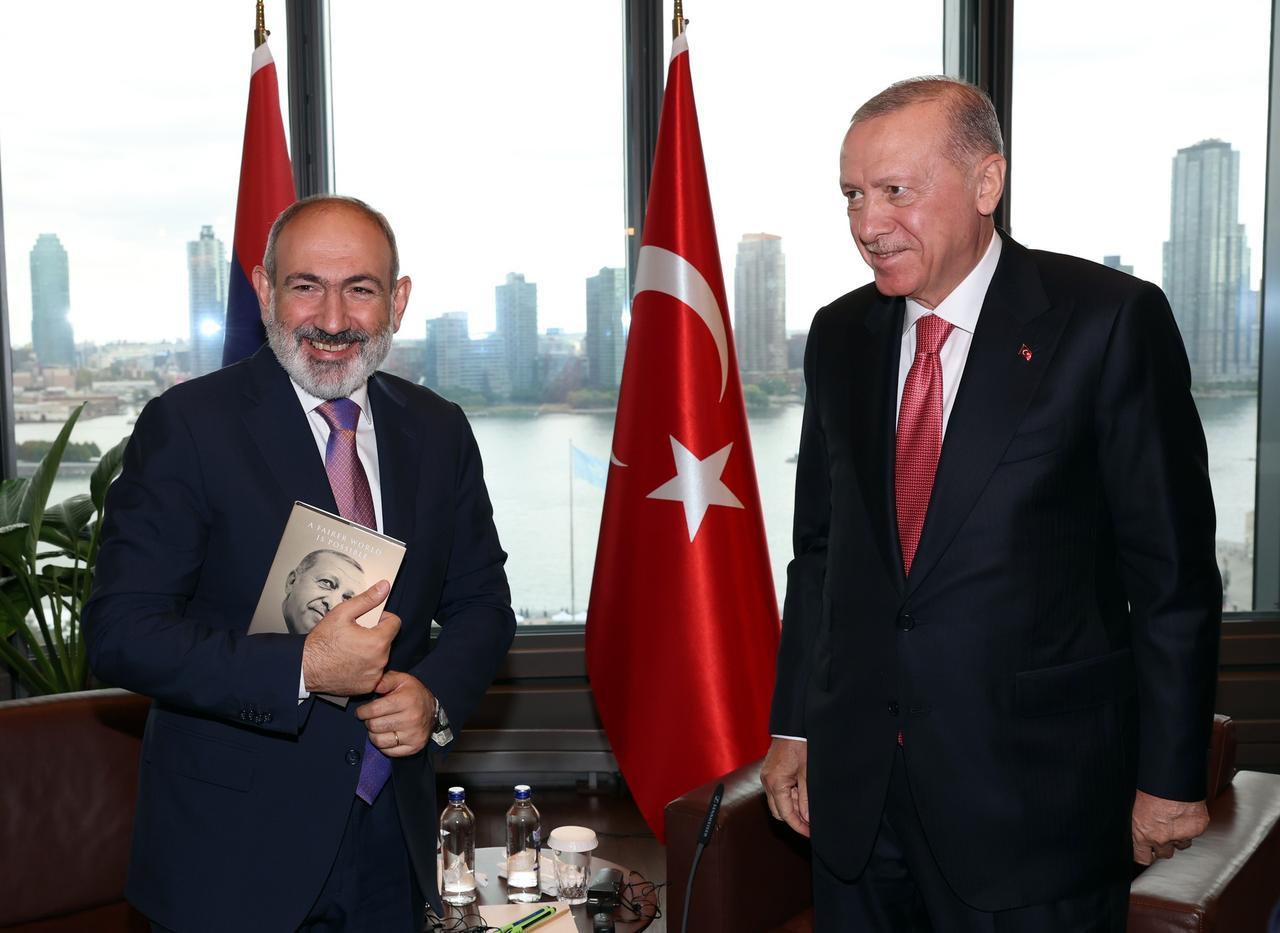
Armenian Prime Minister Nikol Pashinyan arrived in Türkiye on Friday for what officials are calling a historic working visit, marking the highest-level diplomatic engagement between the two nations as they pursue normalization efforts that have proceeded intermittently for over a decade.
President Recep Tayyip Erdogan will receive Pashinyan at the Presidential Dolmabahce Working Office in Istanbul at 6 p.m local time., according to Türkiye's Communications Directorate. The visit represents the first official trip by an Armenian prime minister to Türkiye and comes as both countries work to establish diplomatic relations despite decades of closed borders.
The meeting follows Pashinyan's previous visit to Türkiye in 2023, when he attended Erdogan's presidential inauguration ceremony. The two leaders most recently met face-to-face last month during the European Political Community summit in Albania and spoke by phone during the recent Eid al-Adha holiday.
Armenian Parliament Speaker Alen Simonian emphasized the significance of Friday's visit, stating: "This is a historic visit because it will be the first visit at the level of Armenian prime minister."
The Communications Directorate's announcement of the meeting as a "working visit" positions it as a potential new phase in the dialogue process that has progressed intermittently since 2009.
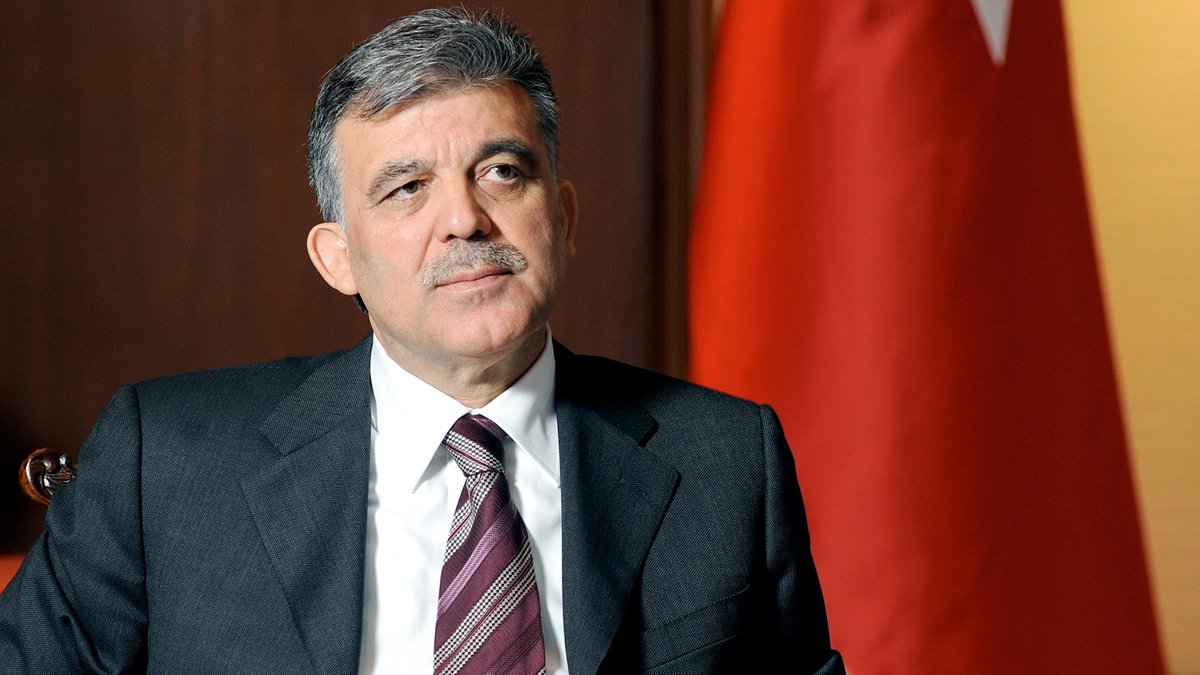
The current normalization process builds on previous diplomatic initiatives, most notably the "football diplomacy" of 2008-2009. The most striking attempt at rapprochement between Türkiye and Armenia following the long period of closed borders occurred during these years.
Then-President Abdullah Gul traveled to Yerevan on September 6, 2008, at the invitation of Armenian President Serzh Sargsyan to watch a Türkiye-Armenia football match from the stands. This development was termed "football diplomacy." In response to this visit, Sargsyan also attended the return match in Bursa in 2009.
During this period, negotiations conducted with Switzerland's mediation resulted in the signing of two protocols in Zurich on October 10, 2009, envisioning the establishment of diplomatic relations between Türkiye and Armenia and the opening of borders. However, these protocols were not ratified by the parties due to both domestic political sensitivities and relations with Azerbaijan, and the process effectively came to a halt.
Türkiye had recognized Armenia, which declared independence from the Soviet Union in 1991, in the same year. In fact, Türkiye had invited Armenia as a founding member to the Black Sea Economic Cooperation Organization during those same years.
However, land borders were closed due to the 1993 Karabakh war. Additionally, Armenia's demand for recognition of so-called 1915 "genocide" continues to be one of the fundamental issues making normalization difficult, as Türkiye opposes the "genocide" thesis.
The closure of diplomatic relations between Türkiye and Armenia occurred in 1993 following the occupation of Karabakh. The 2009 efforts by then-presidents Abdullah Gul and Serzh Sargsyan, who first watched a match together in Yerevan and later in Bursa, represented the most significant high-level engagement between the countries in recent decades.
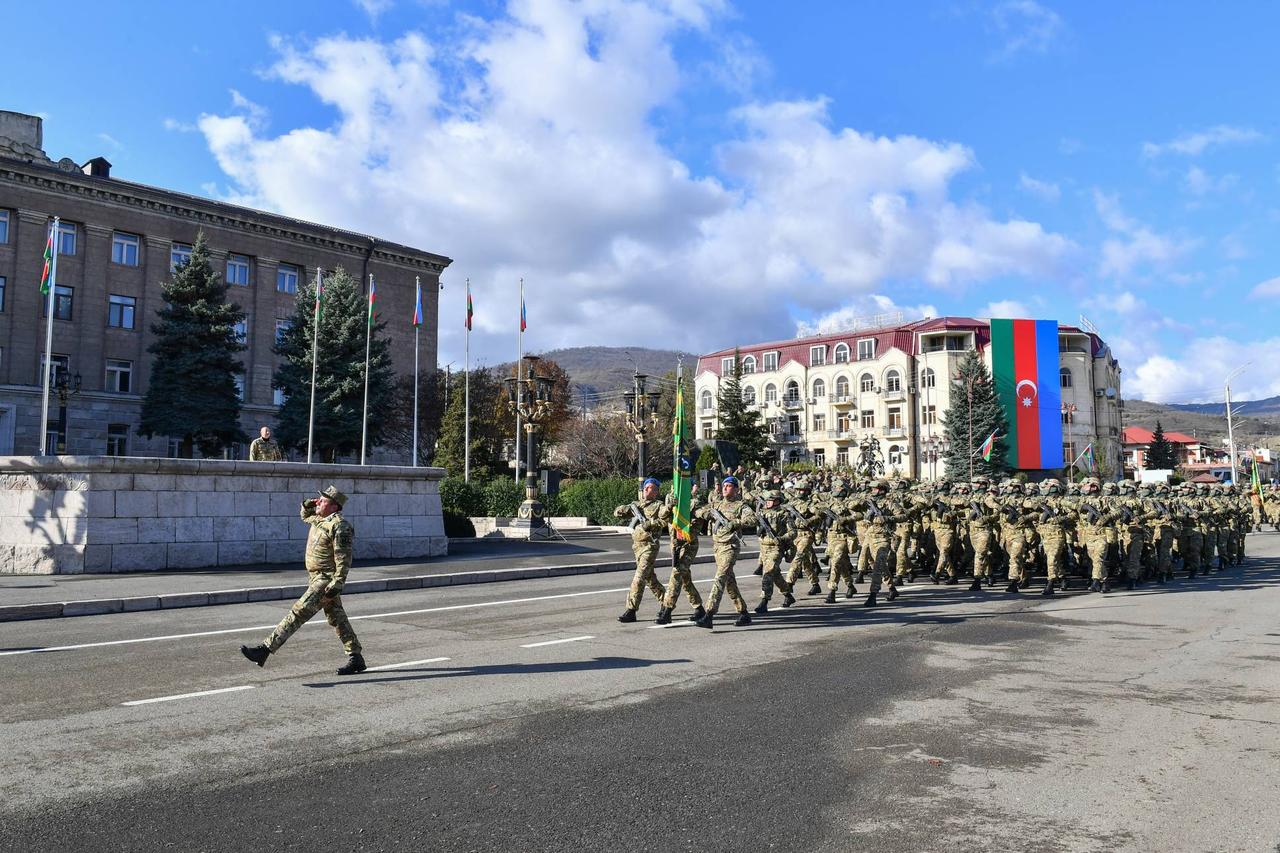
The war that broke out between Azerbaijan and Armenia in Karabakh in 2020 and lasted six weeks fundamentally changed the balances in the region. Azerbaijan, with strong support from Türkiye, reclaimed significant territories in Karabagh. The ceasefire agreement signed on November 10, 2020, with Russia's mediation following the war caused major political upheaval in Armenia and subjected Pashinyan to intense criticism. However, he still managed to maintain his power by winning early elections in 2021.
Subsequently, in 2023 and 2024, Azerbaijan consolidated its control over the region. These developments pushed Armenia toward a new search in foreign policy. The Pashinyan administration began questioning its traditional relationship with Russia while accelerating efforts to reshape relations with the West and regional countries.
The regional shifts following the 2020 conflict created new conditions that made the current normalization efforts between Türkiye and Armenia more viable, as Armenia's strategic position and foreign policy priorities underwent significant changes.
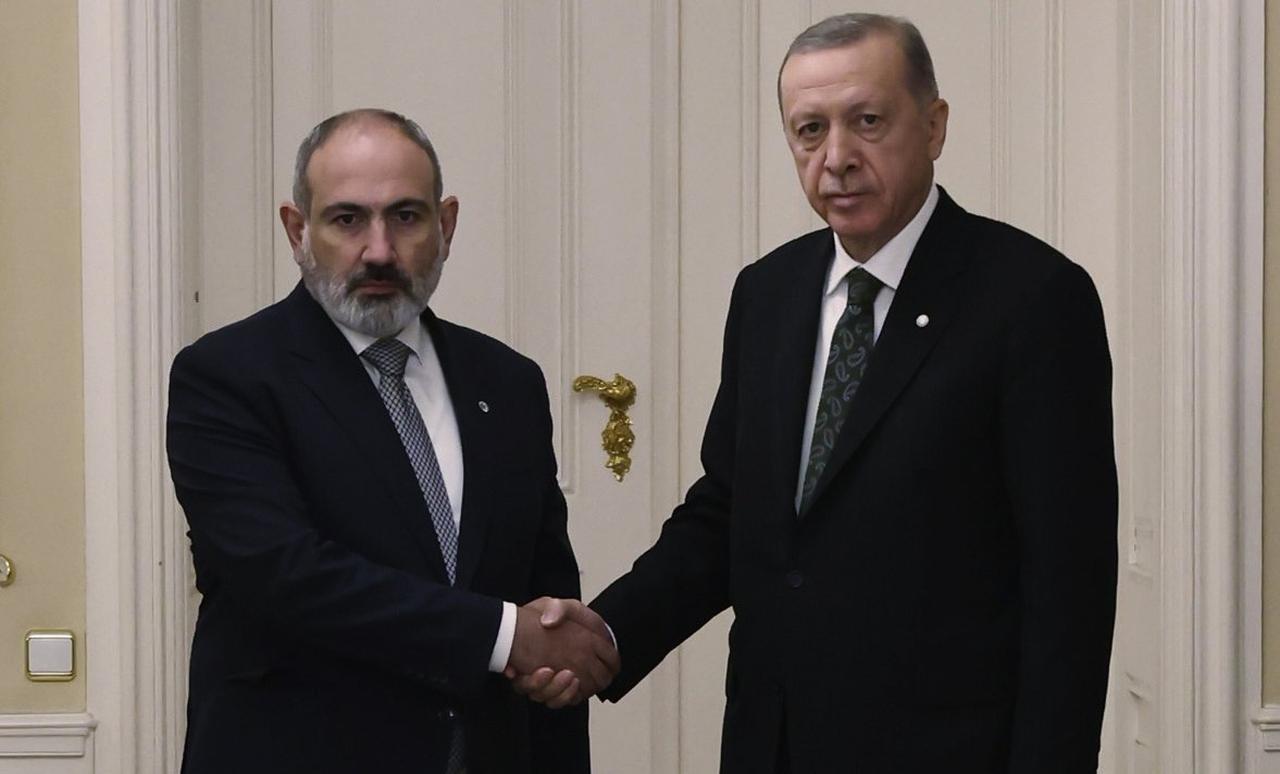
In the new normalization process that began in 2022, Türkiye and Armenia appointed special representatives and took the first concrete steps. Direct Istanbul-Yerevan flights resumed and certain gates were opened for mutual cargo transportation. Following the Kahramanmaraş-centered earthquakes in 2023, Türkiye accepted Armenia's offer to send aid, and this gesture was perceived as a positive signal diplomatically.
One of the important milestones of this process was Pashinyan's participation in President Erdogan's 2023 inauguration ceremony. The process of appointing mutual special representatives in 2021 and initiating efforts to establish diplomatic relations marked the beginning of the current phase of engagement.
Despite progress since the appointment of special representatives, reaching a concrete agreement has proved elusive. The most important reason for this is Türkiye's expectation that negotiations between Armenia and Azerbaijan should first result in a permanent peace agreement.
Speaking at a meeting in Prague this week, Pashinyan made evaluations regarding relations with Türkiye, using the expressions: "We had several meetings with President Erdogan, and these meetings were quite constructive. Although there are no concrete results in the field yet, we have made significant progress."
The Armenian Prime Minister said: "For example, three years ago, when Armenia wanted to learn Türkiye's position on an issue, it could only do so through the mediation of third parties. Today, we have direct, even daily contacts with our neighbors."
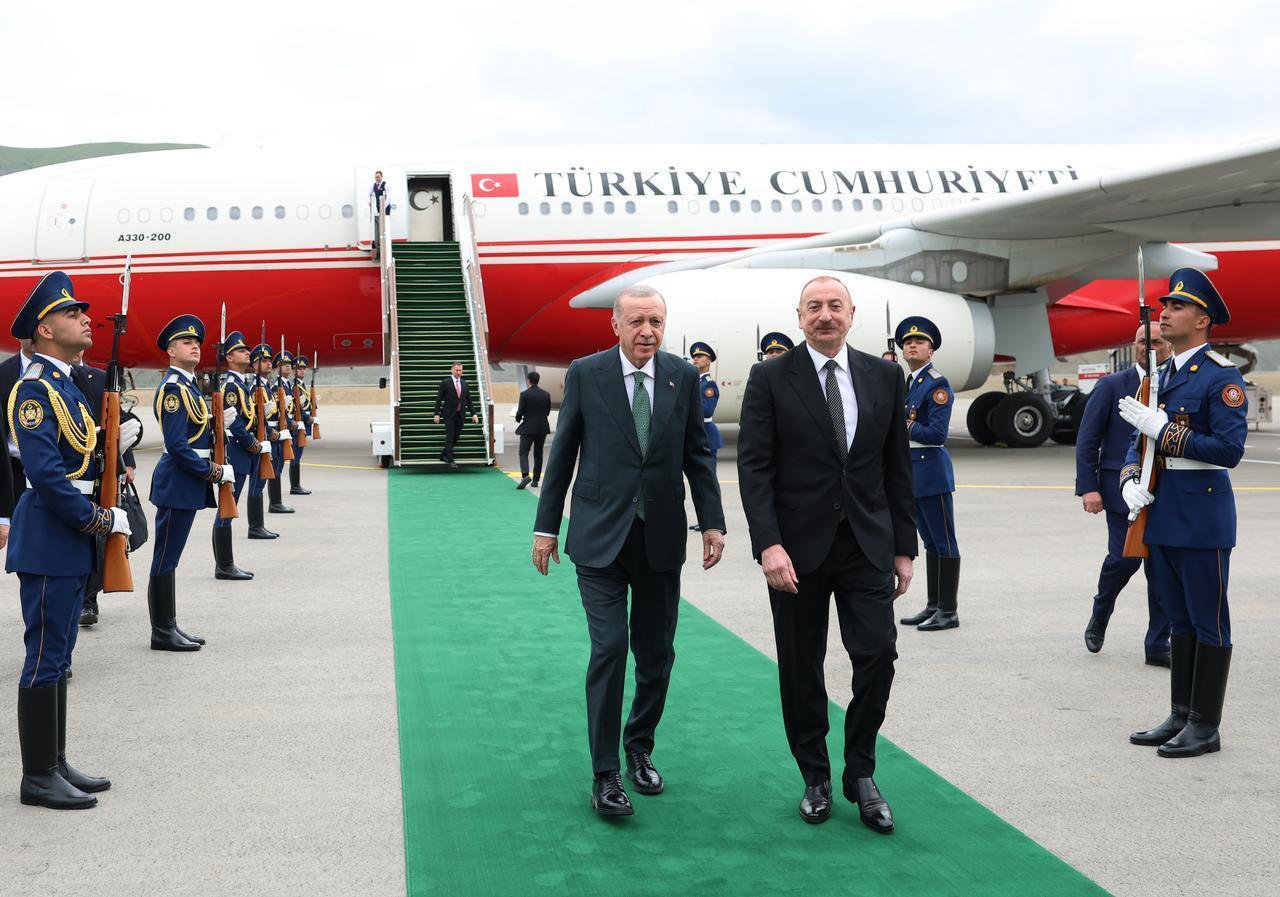
Pashinyan's visit is also significant in that it comes immediately after Azerbaijan President Ilham Aliyev's visit to Türkiye on Friday. Erdogan and Aliyev will inaugurate the permanent housing project built under the name "Azerbaijan Neighborhood" in Kahramanmaraş by Türkiye and Azerbaijan following the 2023 earthquakes.
However, the two leaders are expected to comprehensively address the normalization process that Türkiye and Azerbaijan are conducting separately but in coordination with Armenia. This coordination reflects the complex triangular relationship between the three countries and the interconnected nature of regional diplomatic efforts.
Azerbaijan and Armenia announced in March that they had reached agreement on a 17-article agreement text. However, Azerbaijan demands that Armenia make constitutional changes due to references to Karabagh in Armenia's constitution. Pashinyan gives positive messages for constitutional change but emphasizes that this should not delay the signing of the agreement.
Pashinyan noted at a meeting in Prague this week that he aims to sign the peace agreement with Azerbaijan by the end of the year. Armenia expects Türkiye to pressure Azerbaijan regarding the agreement, while Türkiye maintains its position that normalization should proceed in tandem with Armenian-Azerbaijani peace efforts.
The most fundamental agenda item of the talks between Erdogan and Pashinyan in Ankara will be the normalization process conducted between the two countries. Türkiye and Armenia had appointed mutual special representatives in 2021 and initiated a process for establishing diplomatic relations.
Although there has been progress in the normalization that began after the 2020 war between Armenia and Azerbaijan, which resulted in Armenia losing Karabakh, which it had controlled since the early 1990s, no concrete agreement has been reached. The primary reason for this remains Türkiye's expectation that discussions between Armenia and Azerbaijan should first conclude with a permanent peace agreement.
The protocol to be applied to Armenian Prime Minister Pashinyan during the visit is not yet known, reflecting the delicate diplomatic nature of the engagement given the absence of formal diplomatic relations between the two countries.
Another issue that Pashinyan will bring to the agenda is the opening of the Alican-Margara border gate to third-country nationals and diplomatic passport holders. The two countries had reached an understanding on this issue in 2023. Armenia completed the renovation work to make the border crossing functional, but Türkiye has not yet taken steps regarding the implementation of this agreement.
The Alican border gate had been opened for the first time in 35 years for humanitarian aid passage following the February 6 earthquakes, demonstrating the potential for practical cooperation even amid broader political challenges.
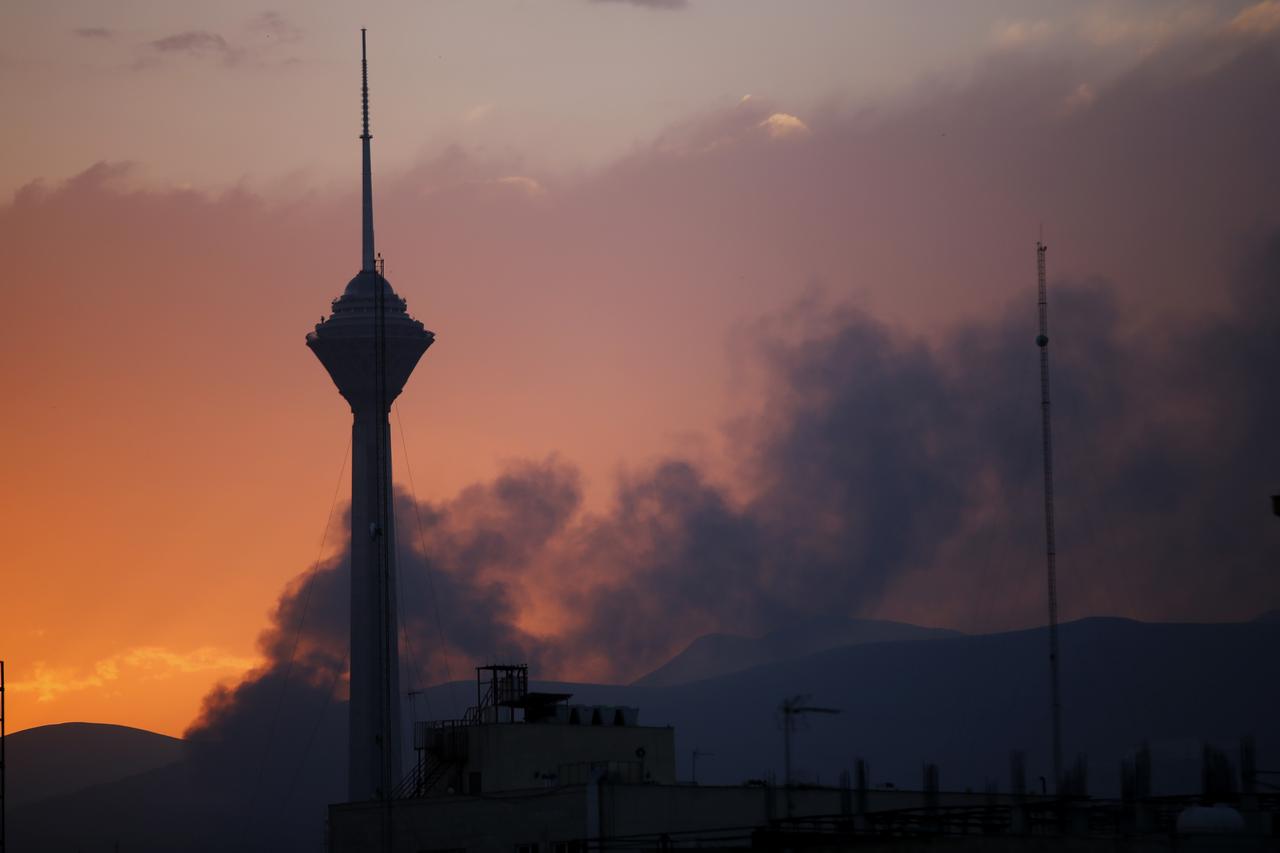
The talks in Ankara are expected to address all regional issues, primarily the Israel-Iran conflicts. Türkiye and Armenia, as two countries with land borders to Iran, are closely monitoring developments. The regional implications of the Israel-Iran tensions have particular significance for both countries given their geographic positions and regional interests.
Projects that will increase connectivity between regional countries are also expected to come up in the meeting for ensuring peace and stability in the South Caucasus and strengthening economic and commercial relations. Türkiye attaches great importance to transportation projects that will connect both through the Middle Corridor and Azerbaijan with Nakhchivan.
The developments in Iran are among the evaluations that create an important situation in terms of putting transportation lines through the South Caucasus into operation. These connectivity projects represent a key element in the broader regional integration efforts that could benefit from improved Türkiye-Armenia relations.